关于夏至的6个小常识
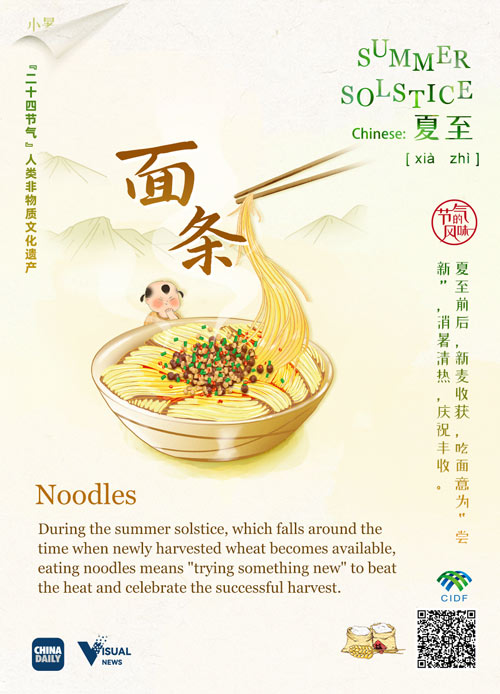
The traditional Chinese solar calendar divides the year into 24 solar terms. Summer Solstice is the 10th solar term of the year.
夏至是中国传统二十四节气的第10个节气。
At this time, much of the northern hemisphere receives the most hours of daylight, but it does not bring the hottest temperatures which will come only 20 to 30 days later.
在这一天,北半球的大部分地区白昼最长,但是气温却不是一年中最高的,最高气温将出现在20到30天后。
The following are 6 things you might not know about Summer Solstice.
来看看关于夏至的6个小常识。
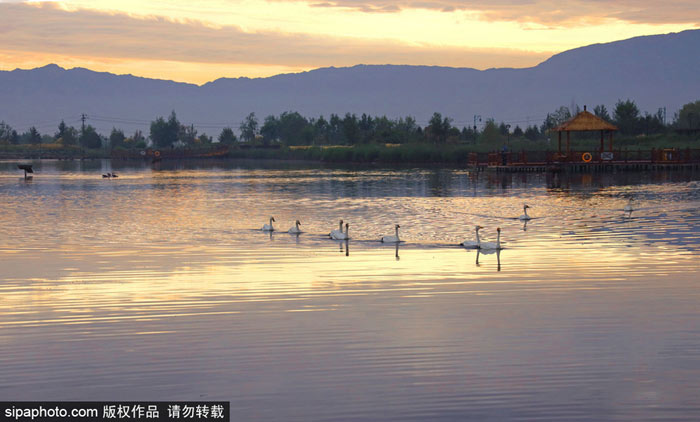
The longest day of the year
夏至这天白昼最长
On the Summer Solstice itself, daylight lasts the longest for the whole year in the northern hemisphere. After this day, daylight hours get shorter and shorter and temperatures become higher in the northern hemisphere.
在夏至这天,北半球的白昼是全年最长的。过了夏至,北半球的白昼越来越短,气温却会继续升高。
How long is the longest day in China? According to the expert Yan Jiarong, the entire day in Mohe in Heilongjiang province, located in the northernmost tip of China, lasts nearly 17 hours when you include dawn, twilight and its afterglow. Summer Solstice is the best season for viewing the aurora in Mohe, "the sleepless town of China".
中国境内的白昼最长能达到几个小时呢?据专家严家荣介绍,在中国最北端黑龙江省漠河,算上黎明、黄昏和落日余晖,昼长可持续近17个小时。夏至是在“中国不夜城”漠河观赏极光的最佳时节。
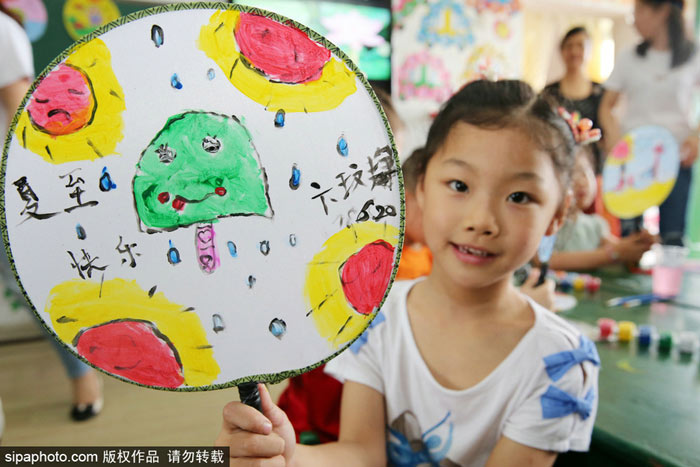
A public holiday in ancient times
夏至在古代是公共节假日
Summer Solstice was an important festival in ancient China. As early as the Han Dynasty (260BC-220), when the Mid-autumn Festival and the Double Ninth Festival were not as important as they are today, the Summer Solstice was already celebrated.
在中国古代,夏至是一个很重要的节日。早在汉朝时期(公元前260年-公元220年),中秋和重阳还没有像现在那么重要的时候,就已经在庆祝夏至了。
Before the Qing Dynasty (1644-1911), people even had a one-day holiday on Summer Solstice. According to Song Dynasty (960-1279) records, officials could have three days off during the Summer Solstice.
清朝(1644年-1911年)以前,人们甚至会在夏至这天放一天假。根据宋朝(960年-1279年)文献的记录,官员在夏至可以放三天假。
To celebrate Summer Solstice, women gave colored fans and sachets to each other. Fans could help them cool down and the sachets could drive away mosquitoes and make them smell sweet.
为了庆祝夏至,妇女会互赠彩扇和香囊。扇子可以驱热,香囊可以驱蚊抑臭。
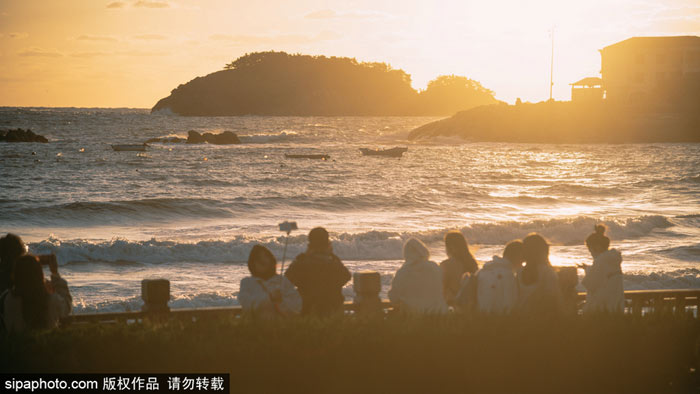
Seeing the sun turn around
看太阳转身
Hani autonomous county of Mojiang, Southwest China's Yunnan province is located on the northern tropic. Every year on the Summer Solstice, the sun sits directly over the Tropic of Cancer and returns from north to south. Then, the amazing phenomenon known as "upright pole with no shadows" occurs.
云南省墨江哈尼族自治县位于北回归线上。每年夏至,太阳会直射北回归线,而后太阳直射点将从北半球逐渐南移至南半球。此时就会出现“立竿不见影”的奇观。
The Hani people revere the sun. They welcome the turn-around of the sun and offer sacrifices to it.
哈尼族人崇拜太阳,每年夏至日,他们都会喜迎“太阳转身”,并献上祭品。
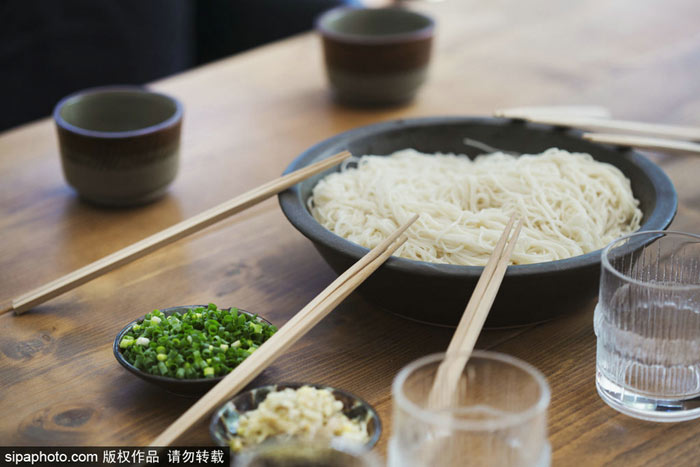
Eating noodles
吃面条
There is a saying in Shandong province which goes, "eat dumplings on the Winter Solstice and eat noodles on Summer Solstice." People in different areas of Shandong province eat chilled noodles on this day. Other people around China, including those in Beijing, also have a tradition of eating noodles.
山东有句谚语“冬至饺子夏至面”。夏至这天,山东各地的人普遍都要吃凉面。中国其他地方,包括北京,也有夏至吃面的传统。
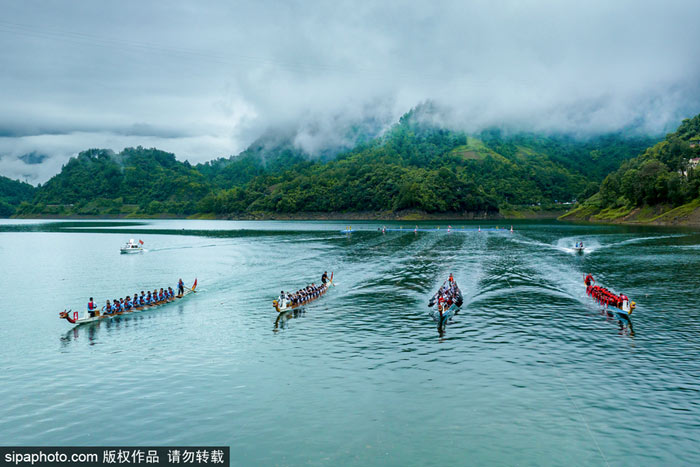
Dragon boat racing in Zhejiang
浙江的赛龙舟
Due to the local climate, Dragon boat races have been held on the Summer Solstice day in Shaoxing, Zhejiang province rather than on Dragon Boat Festival since the Ming (1368-1644) and Qing (1644-1911) dynasties. This tradition is still in practice today, with all the attendant excitement.
因为当地气候的原因,浙江绍兴的龙舟比赛自明朝(1368年-1644年)和清朝(1644年-1911年)以来往往不在端午节,而在夏至举行。到这一天,观者云集,热闹非凡。这一传统至今尚存。
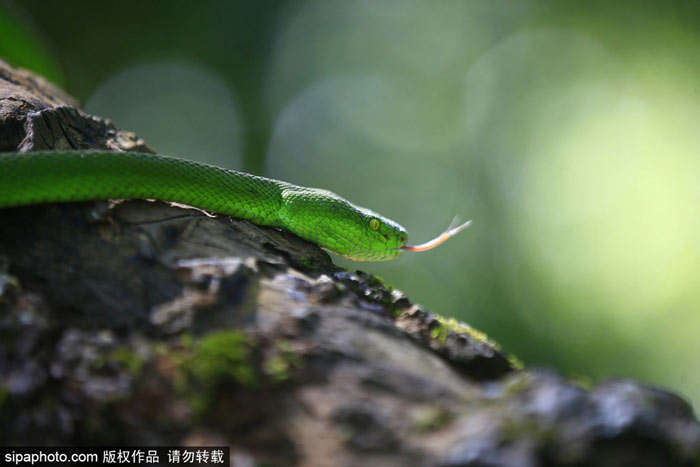
Summer Solstice idiom
夏至相关的成语
In Chinese, an idiom "杯弓蛇影" is related to Summer Solstice.
中国成语“杯弓蛇影”与夏至有关。
According to the records of Fengsutong (a book about Chinese customs), written by Ying Shao from the Eastern Han Dynasty (AD25-220), a man named Du Xuan attended a banquet on Summer Solstice, where he mistook the shadow of a bow in his cup for a snake and he had to drink it out of fear.
据东汉时期(公元25年-220年)应劭的《风俗通》记载,一位名叫杜宣的男子在夏至这天参加了一场宴会,他将映入酒杯中的弓影误以为是蛇,但因畏惧主人不敢不饮下这杯酒。
After the banquet, he felt chest pains and a bellyache and couldn't recover even after seeing many doctors. Finally, he found he had mistaken the shadow of a red crossbow on the wall for a snake in his cup and recovered. Later, people used this idiom to refer to people who are suspicious and frighten themselves.
宴会结束后,杜宣感到胸腹疼痛,看了许多医生也不见好。最后他发现,自己将墙上挂着的一张赤弩的倒影看成了杯中的蛇,于是身体就康复了。后来,人们用这一成语形容疑神疑鬼、自己吓自己的人。
 微信
微信




 桂公网安备 45020202000113号
桂公网安备 45020202000113号